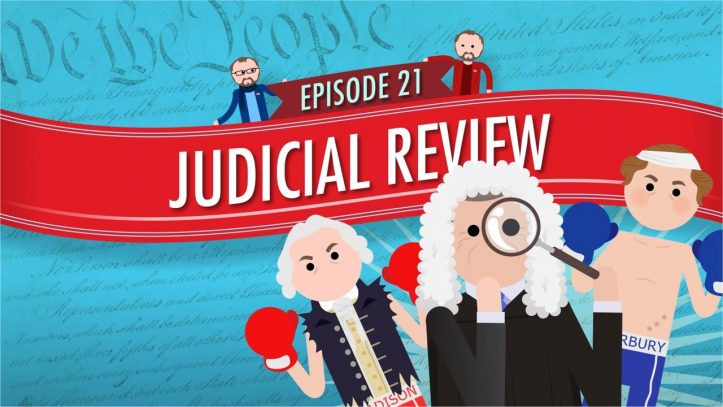What is judicial review? Judicial review is an act under which the legislature or executive branch of a country makes certain regulatory action, which is subject to judicial review. The courts, through Judicial Review, are empowered to review and can grant final disposition on, if any, such regulatory acts.
A party who has been a victim of such regulatory abuse may seek judicial review to inquire into, and to determine if there has been any abuse of the regulatory authority.

What is judicial review, and what is its role in our society? Judicial review is one aspect of our constitutional system, which safeguards and protects all citizens against governmental encroachment on their constitutional rights. The purpose of judicial review was to limit the powers of the legislature, to ensure that laws complied with the Constitution and prevent the courts from being taken over by the legislature. This system has been very useful in ensuring that our government officials are elected based on their performance and not on their views or intentions about how the law works. In other words, if the courts believe that a law is unconstitutional, they must make the decision themselves; however, the courts have no power to declare a law to be unconstitutional before the legislature passes it.
Judicial Review gives the courts the ability to review executive and legislative action and to prevent the executive and legislative branches of our government from making unlawful decisions. This is necessary because, as we have seen recently, many officials, both in the federal government and in each of the state houses, are using regulatory powers to thwart the will of the people. Through judicial review, the courts can protect the rights of citizens to have their interests protected by law. They can correct the obvious flaws in the legislation. And, if the courts find that a law is unenforceable, the law itself can be declared invalid.
There have been some important decisions in this area in the past, such as the Dred Scott case, which held that blacks were not properly represented during the process of obtaining a slave contract. The United States Supreme Court has since ruled that the 14th Amendment to the Constitution gives Congress the power to regulate slavery when it takes effect. There have also been many landmark cases over the years, such as the Brown vs. Board of Education case, which outlawed racial discrimination in education. Many people believe that the decisions in these cases, like the Dred Scott decision, are nullified by the “power of the purse.”
Decisions by the courts, which overturn laws passed by the voters, are called “no-confidence” votes. A “no-confidence” vote is not necessarily a vote against a law. It may simply mean that the legislature was unable to get its act together in the face of the public opposition to enacting the law. So in order to overturn a law, the courts must have some evidence that the voting public didn’t approve of the law in question.
In a nutshell, judicial review determines whether the courts have the power to overturn a prior decision, once it has been made. It does so by looking at the “justicacity” of the decision, or the strength of its legal basis. The court will look to whether there was a sufficient interest in the action for the court to have issued the decision. Whether there was a sufficient reason to prevent an injured party from recovering damages is also a question that the court will consider.
The decision-maker in a case is not always the legislature. Sometimes, the decision maker is the attorney general, or the state attorney for the particular jurisdiction. Another party that may file suit to challenge a court’s action is the party who was harmed. Often, parties will file suit to challenge the constitutionality of a law, or the constitutionality of a law’s application to the particular circumstances involved. The plaintiff is usually the person seeking relief from the court
In summary, judicial review involves three considerations: irrationality, standing, and harm. An arbitrary action is rational only if it could be recognized as having reasonable grounds under the rules of public function. If an action violates a standing warrant, or if the public function is served by an arbitrary decision-maker, that decision can be justified on public function grounds alone. Finally, if an action violates a fundamental public trust, the only ground for recovery will be harmed.